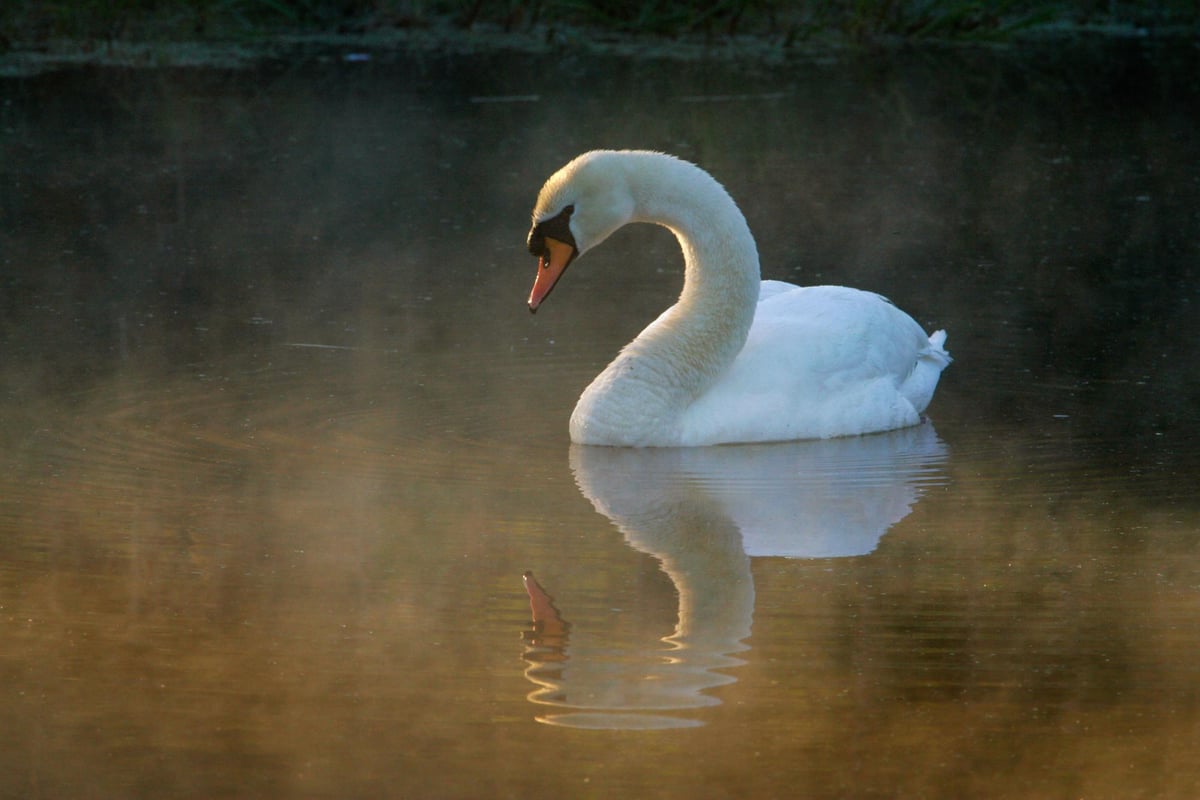UPDATE: A significant surge in Avian Influenza cases is raising alarms for wild birds across the UK as scientists scramble to monitor the situation. Recent reports confirm the detection of the disease, commonly known as bird flu, in various wild bird species, prompting urgent calls for public awareness and reporting.
The British Trust for Ornithology (BTO) has reported a troubling increase in dead birds, particularly among waterbirds like Mute Swans and Whooper Swans. With migratory birds arriving for the winter, the risk of spreading this highly pathogenic avian influenza (HPAI) has intensified. Conservationists and birdwatchers are already observing alarming fatalities, which could signal the onset of a potential epidemic this winter.
Mass fatalities have also been reported in Germany, where over 2,000 Common Cranes have succumbed to the virus. The implications for the UK could be dire, with experts warning that tens of thousands of wild birds may be at risk if the outbreak escalates.
Dawn Balmer, head of surveys at BTO, emphasized the public’s role in mitigating the crisis. “We can all play a part in helping to understand which species are suffering mortality at this time by reporting all the dead birds that we find for possible collection and testing for HPAI,” she stated, urging citizens to use platforms like BirdTrack for reporting.
In a stark warning, Professor James Pearce-Higgins, BTO director of science, revealed the devastating toll of the disease: “The disease killed hundreds of thousands of wild birds across more than 150 species in the UK from 2021 to 2023. Another catastrophic event this winter could lead to the loss of tens of thousands more, particularly among vulnerable species like the Whooper Swan.”
Authorities are calling for immediate action. All instances of dead or sick birds must be reported to Defra in the UK and DAERA in Northern Ireland. The public is advised to contact these organizations online or through the hotline at 03459 33 55 77 for assistance. Testing and collection decisions will be made by Defra/DAERA, but citizens are urged not to touch any dead or sick birds and to keep dogs on leads to prevent further transmission of the disease.
The situation is developing rapidly, and the BTO stresses that monitoring the spread of avian flu is essential for effective response strategies. As winter progresses, the impacts on wild bird populations could be severe, affecting not only biodiversity but also the ecosystem’s health.
Stay informed and help protect wildlife by reporting any sightings of affected birds. The urgency of this situation cannot be overstated—every report counts in the fight against HPAI.







